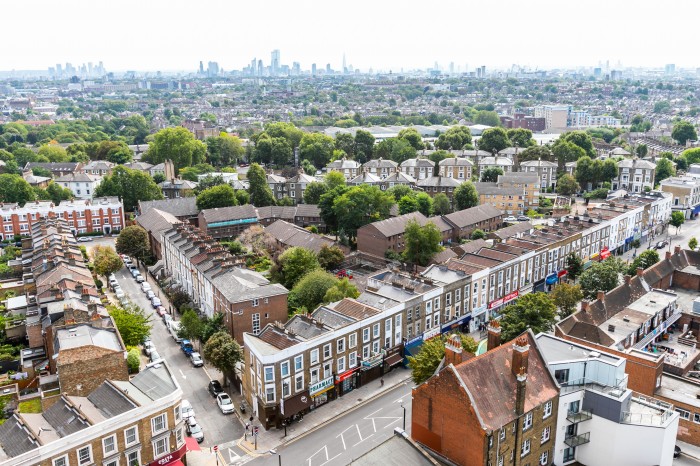Proposed Government plans to allow extensions without planning permission
Posted in February 2024
Michael Gove, the Secretary of State for Levelling Up, Housing and Communities has created controversy over his latest proposed plans to allow homeowners the right to build extensions to their property, with no planning permission required.
Gove has been accused of sparking a potential 'free for all' that could jeopardise the character of long-preserved towns and lead to major disputes between neighbours over these proposals.
Published on 13th February 2024, the consultation on permitted development rights, further proposes to allow homeowners the option of building wider and taller extensions without requiring any planning consent.
The contentious proposals include permitting development for the following:-
L-Shaped Wrap-Arounds
Loft Conversions
Kitchen Extensions
These plans aim to scrap the existing rules whereby a home and any extension to it, cannot make-up over 50% of the land that surrounds it. This is known as the curtilage of a property.
There is also proposals that would allow homeowners to convert unlimited loft space, without requiring permission.
These new proposals are part of a wider shake-up to planning rules unveiled on 12th February 2024. Changes mean permission for homes will be automatically granted in urban areas that do not meet their building targets.
Existing red tape will also be slashed so offices and shops that are empty and can be converted into residential homes much easier.
Property lawyers and surveyors have said that the proposed new rules drawn up by the Levelling Up Secretary could see an escalation in disputes between neighbours over extensions that no longer require planning permission. Where kitchen extensions could encroach on garden fences and imposing loft conversions could block the sun by casting dark shadows over back gardens.
David Toogood, of Harding Chartered Surveyors, said: “If you let neighbours make these changes to their properties without controlling it, you’ll create a civil war. It won’t work.
“Our industry will be rubbing its hands together. There will be masses of work for surveyors and lawyers sorting this mess out. It will cost people thousands to get lawyers and surveyors involved.”
Noble Francis, economics director at the Construction Products Association, a trade association of the construction industry said: “Extensions and rebuilding homes can often lead to conflict between neighbours so, naturally, an easing of the planning system could lead to more extensions and therefore more conflict on either side of the fence.”
Gary Rycroft, a senior partner at Joseph A Jones & Co Solicitors, said the proposed changes could undermine existing rules to protect homeowners from damage caused to their property by a neighbour.
Since 1996 the latest version of The Party Wall Act has been used to protect homeowners from works in their vicinity which might damage their property.
For example, when a building owner wants to extend their loft, they may need to erect scaffolding on their neighbour’s lawn, which could in turn cause significant damage. The act gives neighbours a way to seek recourse in the event of this happening.
Lawyers have expressed concern that Gove’s new rules could also undermine the common “rights of lights” law, which entitles a property owner to a minimum level of natural light.
Geoffrey Adams, senior director at surveying firm Anstey Horne, said: “A two-storey extension can hugely increase bulk and restrict light into neighbouring properties. That does and will have a legal impact, and most likely a knock-on to people’s health.”
Under the proposed rules, rear extensions would be allowed to reach as tall as the highest point of the house – but only if the extension cannot be seen from the street.
The Government’s consultation says homeowners should be allowed to convert as much of their loft space as they wish, rather than being limited to 50 cubic metres in most cases, or 40 cubic metres in terraced houses.
For those people living in flats that have loft space, they will be will be able to make “modest extensions” without requiring planning permission, under these plans. Current height limits for single-storey extensions will remain at four metres, to ensure against overdevelopment.
In the fine print of the consultation, it was also revealed that the Government is seeking to scrap rules that mean the freeholder of a block of flats can add two storeys on top of the existing building.
Leaseholders have previously made complaints about the existing rules, saying they do not allow them a say in the development of their building.
A spokesperson for the DLUHC said: “We are committed to delivering the right homes in the right places, as well as empowering people to extend their homes outwards and upwards.
“Our loft extension proposals aim to free people from the arduous process of planning permission, giving householders more flexibility to meet the needs of growing families and maximise the potential of their homes.”
The Government’s consultation on these new proposals will be open until 9th April 2024.
Latest posts
Free property valuation
With three local offices we have unrivalled market knowledge. A senior member of the David Andrew team will come to your property to provide an accurate sales valuation or rental valuation and offer comparable properties we have sold in order to justify our valuation and to show how we can achieve you the best possible price.
Register with us
Register today to receive instant alerts when we add properties that match your requirements.


